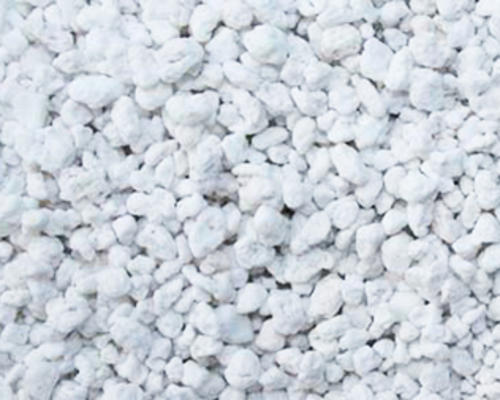Perlite, 100L bag
Check my rate
| Main centres: | 1-3 business days |
| Regional areas: | 3-4 business days |
| Remote areas: | 3-5 business days |
Product information
You are viewing the 100 Litre bag of GROPERL perlite (also available in 2 & 5 L bags)
Background
In horticultural applications, Perlite is used throughout the world as a component of soilless growing mixes where it provides aeration and optimum moisture retention for superior plant growth. For rooting cuttings, 100% Perlite is used. Studies have shown that outstanding yields are achieved with Perlite hydroponics systems. Other benefits of horticultural Perlite are its neutral pH and the fact it is sterile and weed- free. In addition, its light weight makes it ideal for use in a container growing. Other horticultural applications for Perlite are as a carrier for fertilizer, herbicides and pesticides and for palletizing seed. Horticultural Perlite is as useful to the home gardener as it is to the commercial grower. It is used with equal success in greenhouse growing, landscaping applications and in the home in the house plants.
What is it?
Perlite is a naturally occurring volcanic glass formed when lava cools rapidly, trapping minute quantities of water. When heated to about 1000ºC, the trapped water vapourises and puffs out the softened granules to form a mineral foam. It is used extensively in industry for various applications, including the filtration of foods and beverages. The porous nature of the cellular granules result in a product which holds large quantities of readily available moisture, and has a strong capillary attraction for water. Since it is free-draining, it is also well aerated. These properties make perlite very suitable for use in ebb- and flood systems. Perlite is classified as chemically inert and has a neutral pH. It does not degrade or form any chemical reaction with nutrient formulations, which results in better and easier control of fertigation regimes and thus more predictable growth patterns over the entire production cycle.
Capillary properties of Groperl®:
A constant supply of nutrient is maintained in the perlite from a shallow reservoir of solution in the bottom of the growing bags. Water removed by transpiring plants is rapidly replaced by capillary rise through the perlite from the basal reservoir. The moisture profile will remain constant as long as the reservoir is maintained.

Application
Groperl®can be used in a number of different hydroponic systems. Each system has its own advantages and disadvantages, and a grower should determine which approach is most suitable for his specific application. The optimum volume of Groperl® per plant will be determined by the degree of control which can be exercised over the entire growing environment. Trials have been conducted at various research institutions, using different bag sizes and varying the number of plants per bag. As a rule of thumb, 10 litres of Groperl® per plant should give acceptable results. In more sophisticated systems it would be possible to reduce the required volume of Groperl® per plant to less than 5 litres. The smaller the rooting volume, the greater the managerial skill required to achieve optimum results.The bag or pillow system requires an efficient trickle or drip irrigation system. The gully reservoir system can be irrigated using either trickle irrigation or a single inlet per row. In all cases, there should be a degree of over-watering to ensure plants are not stressed and to prevent build-up of salts. It is not recommended to have a run-off of less than 25%.The conductivity and pH value of the solution in the reservoir should be checked daily. The conductivity of the free solution should be around 1000 micro siemens/cm lower than the conductivity of the feed solution. Groperl® can be economically sterilised for re-use many times by a number of methods. These include steam, dry heat, or any of the commercially available sterilants. By using the latter, it is possible to do this in-situ, without having to unload and repack the Groperl®.